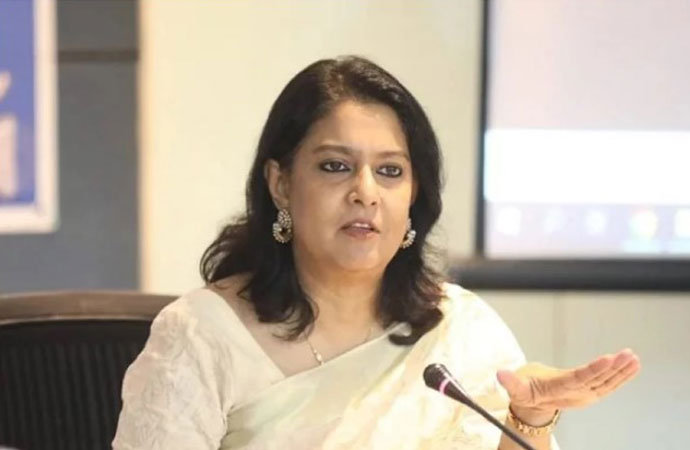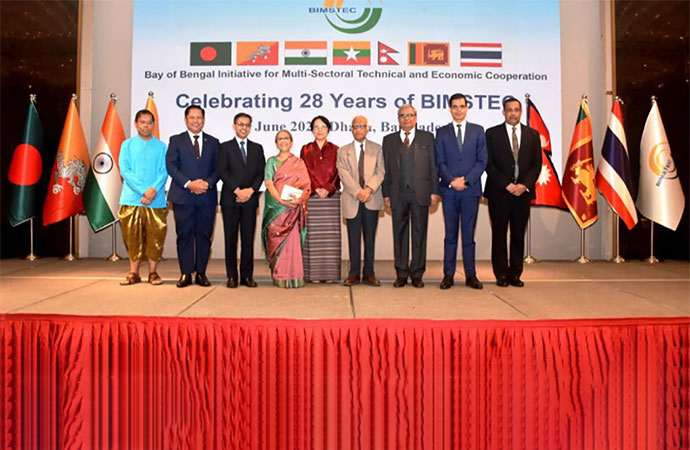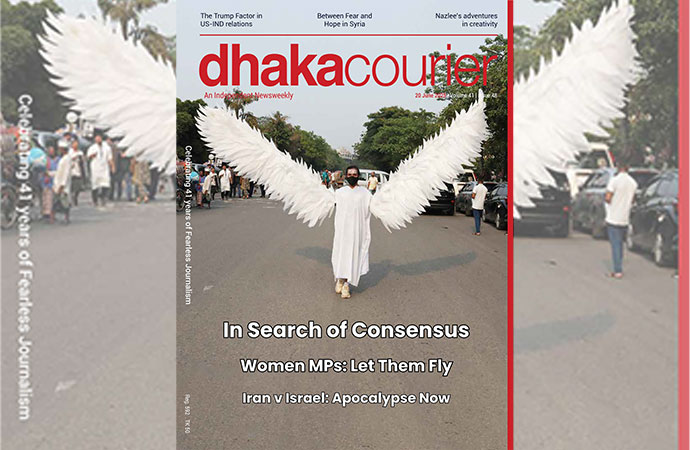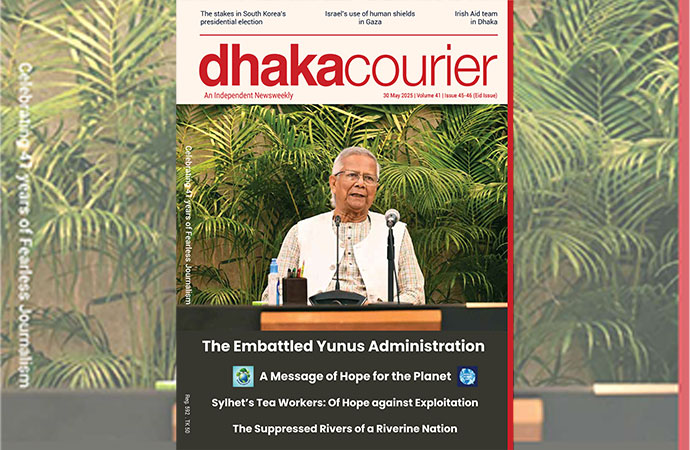Reportage












Photo's: UNB
Speakers at the launching ceremony of the International SeaKeepers Society's Bangladesh chapter have laid emphasis on joint efforts to raise awareness about ocean issues and support the cause to protect and preserve the sea in Bangladesh.
"No single organization can do it. It really takes everybody to solve the problem. Everybody has a role to play. Everyone matters. We look forward to a big Bangladesh Chapter," said Jay Wade, chairman of the International SeaKeepers Society, at the event in Dhaka on Wednesday.
Enayetullah Khan, who contributes enormously towards many human causes like the conservation of wildlife, has been named as the President of the Bangladesh Chapter of the organisation.
Khan is the chairman of Cosmos Foundation, a philanthropic arm of Cosmos Group and founder of WildTeam, an organization that works for wildlife conservation in the Sundarbans.
Julian Chang, president of the International SeaKeepers Society's Asian arm, headquartered in Singapore, said Khan's job will be very easy with the people behind him.
Enayetullah Khan, also the Editor-in-Chief of Dhaka Courier and UNB, said they will adopt all the good strategies in the protection of the health of the ocean, noting that "We are a nation of doers. We will keep it going forward."
He said the Bangladesh chapter will keep up with the activities that are done globally and regionally. "We will do those activities in our country."
Khan said the decision of the SeaKeepers to come to Bangladesh speaks for Bangladesh's importance. "We can do things. We are the doers. We love our country. We will make sure this country moves forward," he added.
He mentioned that the most precious asset of Bangladesh is the resilience of its people. "Whatever we face, we face with bravery. We are ready to face any challenge."
President of Cosmos Foundation and renowned scholar-diplomat and former Advisor on Foreign Affairs of Bangladesh Caretaker Government Dr Iftekhar Ahmed Chowdhury spoke about the mistreatment and pollution of the seas, the most precious resources.
The United Nations Environmental programme has calculated that every square mile of the ocean contains 46000 pieces of floating plastics, he mentioned.
But, Dr Chowdhury added, the good news is that scientists believe that they can reverse the damage done and the International SeaKeepers is committed to this noble endeavor.
"Their motto - research, educate, protect and restore - deserves high praise. I commend in this context the leadership imparted by its Chairman Jay Wade and the President of its Asian Chapter Julian Chang," he said.
He said Bangladesh, a riverine country, is nestled on the upper reaches of the Bay of Bengal, and this renders them a critical player in the global blue economy.
"Today marks a significant day in our annals in this regard, as we open in this country a chapter of the SeaKeepers. No one is better equipped to lead it as President than chairman Enayetullah Khan of Cosmos. I have known him to be a Renaissance man in every way, with his fingers on every conceivable pie," he added.
"In Bangladesh, there is the advantage of bringing into play the innumerable boats and barges that provide substance to our lifestyle, to our passions and to our poetry," said the scholar.
"If we humans become extinct, the seas won't notice that we are gone. We, on the other hand, cannot live without the seas. This should give us ample food for thought," he added.
Prof Md Anwarul Islam, Chief Executive of the WildTeam, said Enayetullah Khan has given them an opportunity to work with the SeaKeepers.
"You can work by using our platform. We have a very strong platform," he said, adding that "This journey has just begun; we have a long way to go. Bangladesh is growing, and we have a brighter future."
Chairman of WildTeam, formerly the Wildlife Trust of Bangladesh, Enam ul Haque, also spoke at the event.
The International SeaKeepers Society is a non-profit organization, focusing on the health of the world's oceans and climate.
SeaKeepers works with the boating and yachting community to take advantage of their unique potential to further marine research and raise awareness about the issues our oceans face.
The Society acts as a global catalyst working with governments, scientists, industry, and other marine organisations to further its mission. It supports sensible, achievable marine protection and restoration.
Julian Chang, who also sits on the board of the mother organisation based in Miami, Florida, told Dhaka Courier that opening a Bangladesh chapter made perfect sense to the SeaKeepers Society given its extensive coastline that cradles the Bay of Bengal, and also the largest patch of mangrove forest on the planet, in the form of the Bangladesh Sundarbans, adjoining the Indian portion on the other side of the international border.
Chang and Enayetullah Khan met at a flagship event organised by the SeaKeepers in Singapore last year: the first-ever Ocean Collective Summit, and struck up an instant friendship. After the Summit was over they remained in touch and eventually the idea to float the Bangladesh chapter of SeaKeepers came about, and proved to be compelling.
Talking about the kind of programmes they will be looking to take up in Bangladesh, Chang said the president of the chapter and his team were being bestowed with full authority to decide on a programme of action. However, Chang was very clear in his vision about the way to create the greatest impact with one's message, and that to him lies in raising awareness through children's education.
As such, they have an aim to work closely with a number of schools in Bangladesh to take special classes that place environmental conservation at the heart of their daily lives, instead of being some peripheral concern or charity.
"You see, you and I, if we learn something new, maybe we'll remember it today, but tomorrow or the day after, we are bound to forget," Chang explained, before adding: "If you're able to teach a child however, that something is not done, or in this case, how to preserve what nature has given us through a set of practices, you have a lifetime of service to the environment."

























Leave a Comment
Recent Posts
Cosmos Group VP Nahar Khan hos ...
A visiting delegation from Meta, the parent company of Facebook, Insta ...
Break the gloom, build a bette ...
Emphasising the transformative power of social business and its strong ...
‘Mobocracy’ must not prevail
The US Supreme Court allowed the Trump administratio ..
Germany dependable partner in our development journe ..
15th edition of Social Business Day: Prof Yunus to j ..